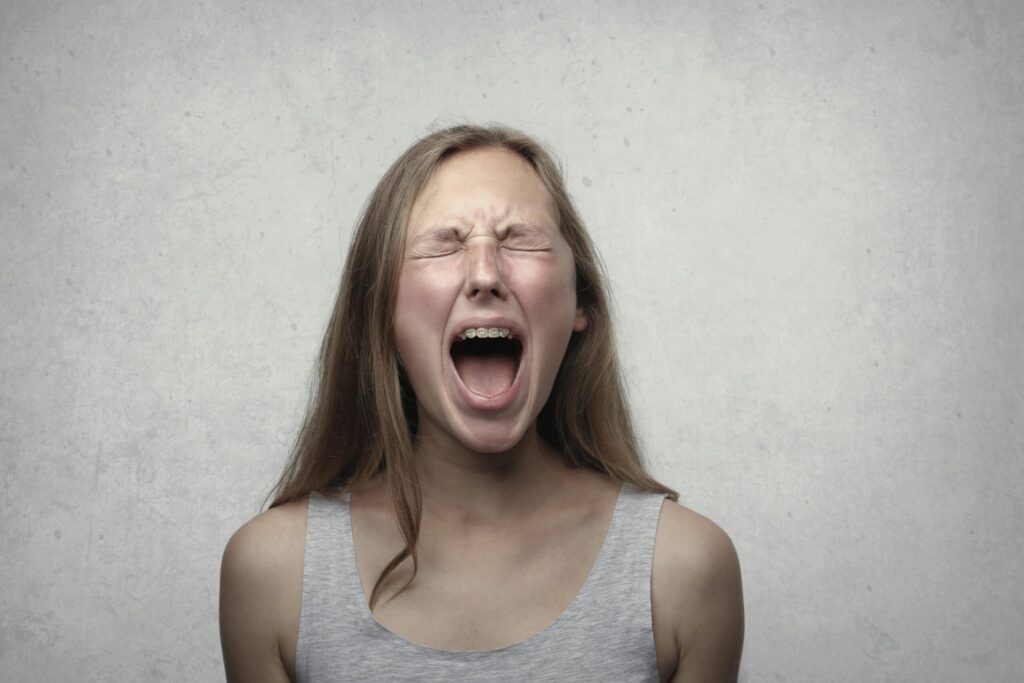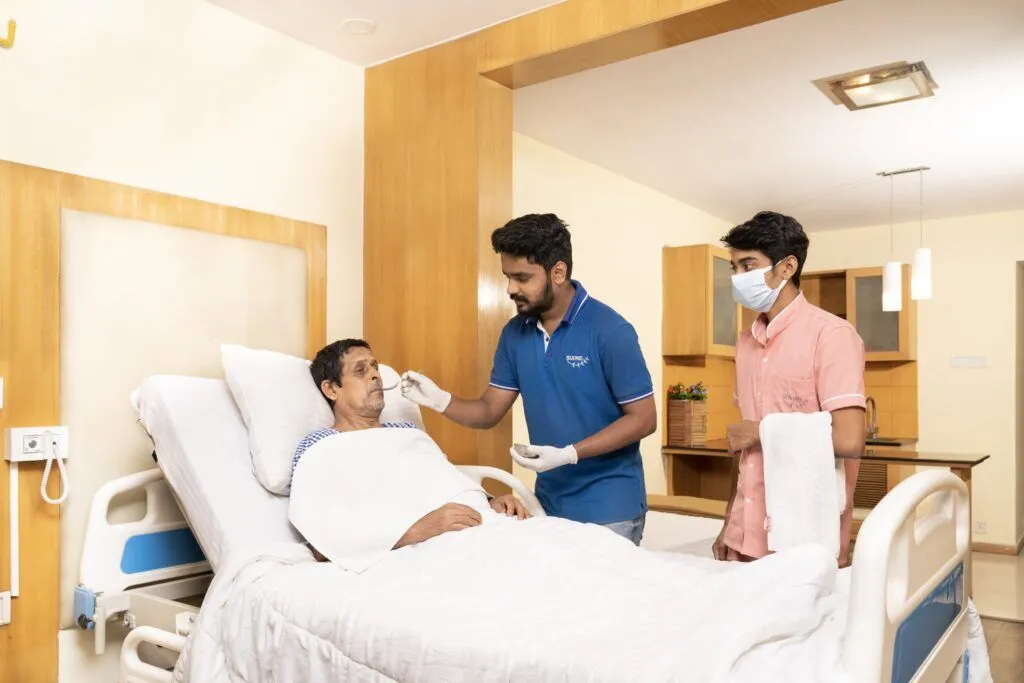
We offer a comprehensive anxiety disorder treatment in Bangalore. Our approach begins with a thorough assessment to understand each individual’s needs. We provide evidence-based therapies, including cognitive behavioral therapy (CBT) and relaxation techniques, to help manage symptoms. Our dedicated professionals offer compassionate support throughout the journey, enhancing emotional stability and improving daily functioning. With state-of-the-art facilities and a holistic focus, we empower you to regain control and live a fulfilling life.
Understanding Anxiety Disorders

Mental health disorders, which are characterised by excessive and persistent anxiety or worry, associated with restlessness, difficulty concentrating on tasks, irritability and interferes with daily tasks. They may take the form of generalized anxiety disorder (GAD), panic disorder, social anxiety disorder and specific phobias .
Signs and Symptoms of Anxiety Disorders
- Behavioral Symptoms:
- Avoidance: People suffering from anxiety disorders escape situations or locations that trigger fear and anxiety.
- Nervousness: It prevents them from relaxing properly or make unable to relax at all. Restlessness, pacing around the room,
- Physical Symptoms :
- Heart Rate Increase: A rise in heart rate or palpitations.
- Dizziness or lightheadedness
- Diarrhoea, upset stomach, or butterflies in the stomach tremors or shaking
- Increased frequency of urination
- Cognitive Symptoms:
- Excessive Worry: Excessive, uncontrollable worry over day to day issues
- Fear and Apprehension of future events
- Trouble Concentration: Trouble maintaining focus or making choices.
- Racing Thoughts: Disorganized patterns of thought that quickly shift and fluctuate with no discernable pattern or form.
Challenges Encountered by Individuals Living With Anxiety Disorders

Daily Functioning Difficulties:
- Individuals visiting our best anxiety rehab centre often report feeling keyed up, unable to relax, always tired, and struggling with quality sleep.
- Impaired Concentration: People suffering with anxiety disorders. have difficulties in focusing on work and obligations. Making mistakes in everyday tasks or at work, forgetting things.
- Avoidance Behaviors: They might avoid specific situations due to fear of a panic attack. This affects both their professional and personal lives.
Social and Interpersonal Strain:
- Social Withdrawal: Anxiety may lead to feelings of isolation and difficulty meeting or interacting with new people, which strain relationships resulting in social withdrawal.
- Communication Barriers: Nerves and fear can impede communication and emotional expression, which results in unhealthy behaviours and affects relationships.
Physical and Emotional Health Consequences:
- Physical Symptoms: Anxiety often manifests physically through symptoms like muscle tension, headaches, increased pulse and an upset stomach.
- Emotional Toll: Additionally, constant anxiety can erode self-esteem resulting in feelings of despair, depression and poor self esteem.
- Alcohol or other substance use: People can turn towards alcohol, nicotine or other substances as a way to relax and find temporary relief. This can, overtime, become problem in itself.
Treatments and Therapies Available at Our Anxiety Rehabilitation
Pharmacological Treatments:
- Antidepressants and anti-anxiety medications are prescribed based on individual needs.
- Anti-Anxiety Medications: based on the doctors prescriptions and individuals need
Psychotherapy:
- Relaxation techniques such as breathing exercises and other muscle relaxation techniques help manage physical symptoms of anxiety.
- Cognitive Behavioral Therapy for Anxiety (CBT) is highly effective in identifying negative thinking patterns and developing coping strategies.
- Graded Exposure Therapy: It assists people gradually overcome specific fears and will be tailored according to individual needs
- Complementary Therapies:
Lifestyle Interventions : Lifestyle interventions include guidelines for diet, exercise and improving sleep hygiene practices.
Expected Outcomes/Benefits from the treatment program:

Expected Outcomes/Benefits From the Treatment Program:
Enhancing Emotional Stability:
- Successful Management: Recognizing how to effectively control anxiety and enhance emotional regulation.
- Reduced Stress Levels: Implement strategies designed to manage stress levels and enhance overall well-being.
- Improving coping skills and building resilience
Improved Daily Functioning:
- Productivity Improvement: Utilize tools to alleviate anxiety and boost performance on daily tasks.
- Better Social Interaction: Acquire skills that allow for more effective use of professional and social situations.
Holistic Recovery:
- Comprehensive Approach: Our holistic anxiety treatment addresses both physical and psychological components of anxiety for complete healing.
- Supportive Environments: Nirvana offer safe spaces devoted to healing.
About Nirvaana
At Nirvaana Mental Wellness, we treat a wide range of psychiatric and mood disorders, providing comprehensive care through a combination of various therapies that make the individuals come back to their routine lives.

Commitment to Excellence
We provide evidence-based treatment using cutting-edge therapies and proven research methods, combined with compassionate care from our dedicated team, ensuring a smooth and successful recovery from anxiety.

Holistic Approach
At our facility, we employ both traditional treatments and holistic practices in order to address all aspects of mental health – physical, emotional, and social wellbeing are taken into consideration when providing holistic treatments.

Expert Care Plan
Care plan crafted by experienced team of multidisciplinary team of psychiatrists, therapists and counselors specialize in bipolar disorder treatment, with years of experience helping our patients recover.

Well-equipped Facility
we understand the vital role environment plays in recovery. We offer modern, comfortable accommodations and amenities designed to provide holistic support through therapeutic options and lifestyle changes
